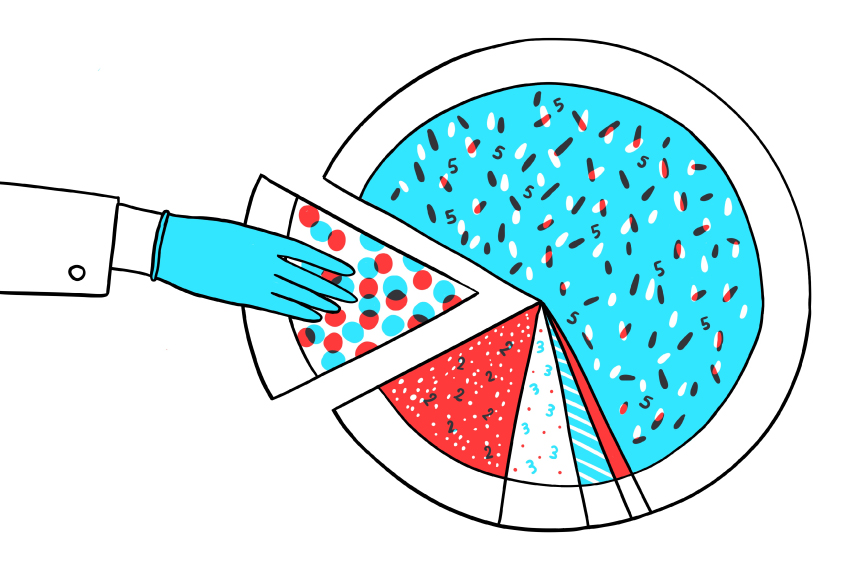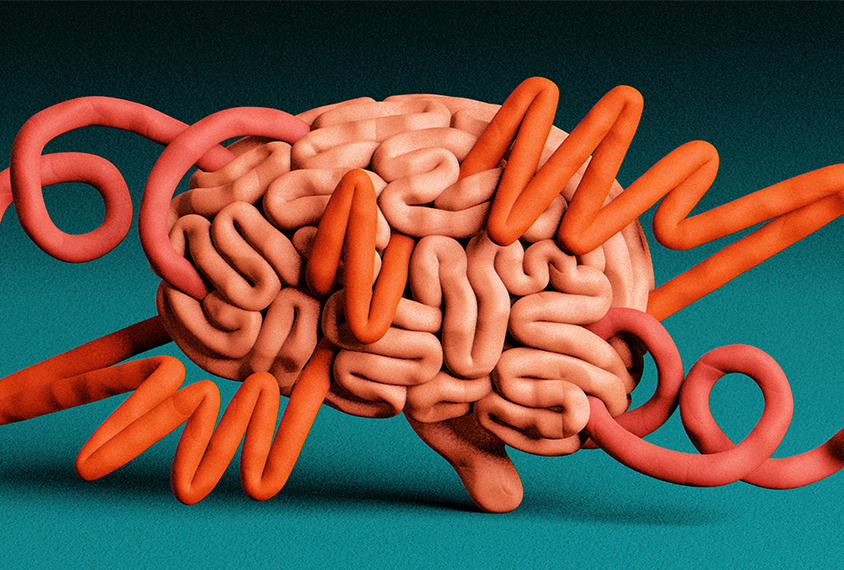Jonathan Moens is a former intern at Spectrum and a graduate student at New York University’s Science, Health and Environmental Reporting Program. He studied philosophy and neuroscience as an undergraduate student at University College London in the United Kingdom. He received an M.Sc. in brain and mind sciences at University College London and École Normale Supérieure in Paris, France, specializing in cognitive neuroscience. He previously worked as a research assistant at the Neurospin laboratory in Paris and the Center for the Neuroscience of the Senses in London.
Jonathan Moens
From this contributor
Autism comorbidities reflect racial, ethnic disparities
Autistic people from historically marginalized races and ethnicities are more likely than their white peers to be diagnosed with accompanying health conditions.

Autism comorbidities reflect racial, ethnic disparities
By the Numbers: Autism in translation, rising prevalence figures, intelligence quotients
In this edition of By the Numbers, we discuss how translation alters a screening tool’s accuracy, the closing racial gap in autism prevalence numbers, and the preponderance of autism without intellectual disability.

By the Numbers: Autism in translation, rising prevalence figures, intelligence quotients
Autism without intellectual impairments more common than previously reported
Almost 60 percent of autistic people may have an average or above-average intelligence quotient, according to a new longitudinal study.

Autism without intellectual impairments more common than previously reported
Rethinking autism assessments in the time of COVID-19: Q&A with Bishop, Zwaigenbaum
Moving most clinical assessments online during the coronavirus pandemic has created a digital divide while closing some geographical ones, say Somer Bishop and Lonnie Zwaigenbaum.

Rethinking autism assessments in the time of COVID-19: Q&A with Bishop, Zwaigenbaum
Disruptions to brain’s ‘thermostat’ may underpin autism traits
Mounting evidence suggests that autism often involves upsets in homeostatic plasticity, a set of processes neurons use to stabilize their activity. These disruptions result from a range of autism-linked mutations and may help to explain the condition’s famed heterogeneity.

Disruptions to brain’s ‘thermostat’ may underpin autism traits
Explore more from The Transmitter
New connectomes fly beyond the brain
Researchers are mapping the neurons in Drosophila’s ventral nerve cord, where the central nervous system meets the rest of the body.

New connectomes fly beyond the brain
Researchers are mapping the neurons in Drosophila’s ventral nerve cord, where the central nervous system meets the rest of the body.
Building an autism research registry: Q&A with Tony Charman
A purpose-built database of participants who have shared genomic and behavioral data could give clinical trials a boost, Charman says.

Building an autism research registry: Q&A with Tony Charman
A purpose-built database of participants who have shared genomic and behavioral data could give clinical trials a boost, Charman says.
Cerebellar circuit may convert expected pain relief into real thing
The newly identified circuit taps into the brain’s opioid system to provide a top-down form of pain relief.

Cerebellar circuit may convert expected pain relief into real thing
The newly identified circuit taps into the brain’s opioid system to provide a top-down form of pain relief.